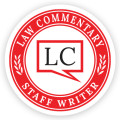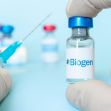Pharmaceutical giant Pfizer Inc., through its wholly-owned subsidiary Biohaven Pharmaceutical Holding Company Ltd., has agreed to pay $59.7 million to settle allegations that Biohaven violated the anti-kickback statute by paying improper incentives to healthcare providers to prescribe its migraine medication, Nurtec ODT. The settlement resolves claims that Biohaven knowingly caused the submission of false claims to federal healthcare programs, including Medicare and Medicaid, prior to its acquisition by Pfizer.
The U.S. Department of Justice (DOJ) alleged that between March 2020 and September 2022, Biohaven offered financial incentives, including speaker honoraria and expensive meals, to healthcare professionals to boost prescriptions of Nurtec ODT. The DOJ further alleged that Biohaven’s speaker programs were often attended by individuals with no educational need, such as family members and colleagues of the speakers, and that many attendees received no meaningful educational benefit from the programs.
“Through this settlement and others, the government has demonstrated its commitment to ensuring that drug companies do not use kickbacks to influence physician prescribing,” said Acting Assistant Attorney General Brett A. Shumate of the DOJ’s Civil Division.
Alleged Kickback Scheme and its Implications
Under the anti-kickback statute, offering anything of value to induce the referral of items or services covered by federal healthcare programs is prohibited. These rules aim to preserve the integrity of medical decision-making and ensure healthcare providers base their prescriptions solely on patients’ needs.
The DOJ claims that Biohaven violated these rules by selecting healthcare providers to participate in its speaker bureau with the intent of incentivizing them to prescribe Nurtec ODT. According to the settlement, this alleged conduct persisted until October 2022, when Pfizer acquired Biohaven and terminated the speaker programs.
“Patients deserve to know that their doctor is prescribing medications based on their doctor’s medical judgment, and not as a result of financial incentives from pharmaceutical companies,” said U.S. Attorney Trini E. Ross for the Western District of New York.
Whistleblower Lawsuit and Financial Recovery
The settlement also resolves claims brought under the False Claims Act’s qui tam provisions by Patricia Frattasio, a former Biohaven sales representative. These provisions allow private citizens to file lawsuits on behalf of the government and share in any financial recovery.
As part of the settlement, approximately $50.2 million will be allocated to the federal government, while $9.5 million will go to state Medicaid programs. Frattasio will receive $8.4 million for her role in exposing the alleged misconduct.
The case, filed under the caption U.S. ex rel. Patricia Frattasio v. Biohaven Pharmaceutical Holding Company Ltd., highlights the government’s reliance on whistleblowers to identify and combat healthcare fraud.
Commitment to Combating Healthcare Fraud
The resolution reflects a coordinated effort by the DOJ, the U.S. Attorney’s Office for the Western District of New York, and other federal agencies. Officials emphasized their continued focus on holding corporations accountable for undermining the integrity of federal healthcare programs.
“Violations of the anti-kickback statute, such as those alleged in this settlement, can unduly influence prescribers and negatively impact taxpayer-funded healthcare,” said Deputy Inspector General Christian J. Schrank of the Department of Health and Human Services Office of Inspector General.
No Admission of Liability
The settlement resolves allegations only, and there has been no determination of liability. Pfizer has reiterated its commitment to compliance with healthcare laws and its support of healthcare providers, emphasizing that it terminated the speaker programs in question after acquiring Biohaven.






